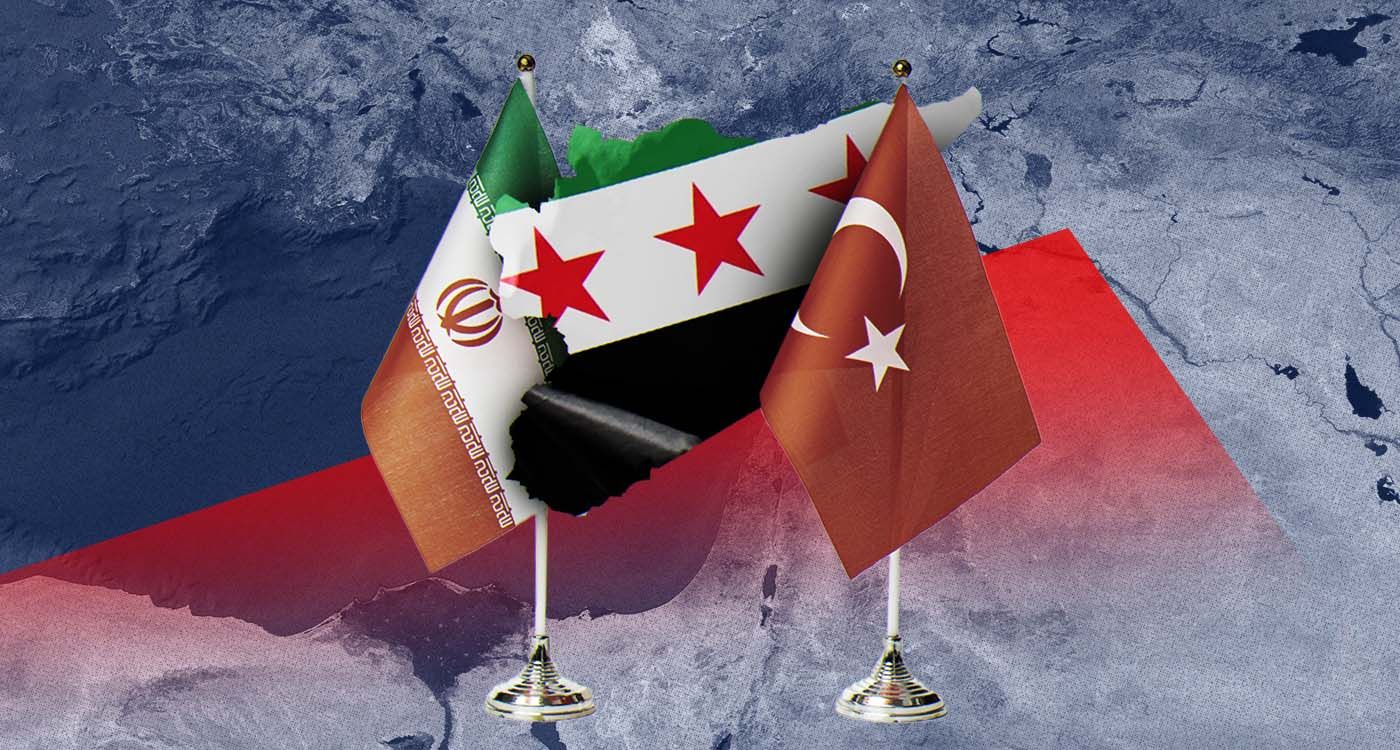- Home
- Middle East
- Replacing Iran with Turkey Is a Recipe for Disaster in Syria

©This is Beirut
The Syrian revolution was not an uprising for liberty, freedom, or democracy. It was a manifestation of Sunni Islamists, backed by Turkey and Qatar, venting their rage against the rule of Assad, supported by Shia Islamist Iran. Syria’s Sunni Islamists did not care that Assad was a brutal dictator; they sought to replace him with their own autocrat.
To be fair, the Syrian revolution began as a noble endeavor, an extension of the Arab Spring. Syrian intellectuals led the charge, demanding liberty and democracy. But, as the saying goes, the revolution eats its own. It did not take long for these intellectuals to flee the country, leaving the conflict to extremists on both sides. Over the past decade, the war has become a struggle between Sunni Jihadism and Shia Martyrdom.
With Russian support, the Shia Islamists initially prevailed. However, with Israel weakening Shia Islamism in Lebanon and Iran, and Russia distracted by the Ukrainian conflict, Sunni Jihadists reversed the tide, ultimately defeating Assad and his Shia allies.
The Sunni Jihadists raced to the presidential palace. Among them, Al-Qaeda’s Abu-Muhammad Al-Jolani emerged victorious, proclaiming himself president. He traded his jihadi attire for a Western suit and adopted his birth name, Ahmad al-Sharaa.
Sharaa’s militia lacks the strength to control all of Syria. To govern, he relies on alliances with other Sunni Jihadi groups. His presidency does not grant him absolute authority; he is merely the first among equals. When Sharaa claims to restore state sovereignty by disarming the Druze and, soon, the Kurds, he tells only half the truth. The other half is that he has yet to disarm any of the Turkish-backed militias in Syria.
Ankara’s agenda conflicts with rebuilding a sovereign Syrian state. Turkey treats Syria much like it does Northern Cyprus: as a puppet state. Turkey also imposes maximalist demands, such as disarming the Kurds without offering them any share of power.
The Kurds of Syria, battle-hardened from fighting alongside US troops to defeat ISIS, will not surrender without resistance. If they refuse to yield, Sharaa’s state will remain fragmented and incomplete.
Turkey’s interests starkly oppose Syria’s. Ankara’s dominance overshadows Damascus, and even if Sharaa wished to break free from his Turkish sponsors, he lacks the power to do so.
Syria is now on a path to becoming a fully Islamist state. When Islamist populism falters and economic growth stalls, these Islamists are likely to export terrorism, narcotics, and refugees, destabilizing the region and beyond.
How did we arrive at this point? Why is post-Assad Syria failing, transitioning from the influence of Shia Islamists backed by Iran to Sunni Islamists supported by Turkey and Qatar?
The answer lies in the colossal failure of moderate Arab governments to assert their influence. Saudi Arabia, alongside Egypt, the United Arab Emirates, and Jordan, should have led a coalition to guide Syria toward moderate governance, not the militant Islamism of Turkey and Qatar.
Yet, moderate Arab capitals have been reactive rather than proactive. They hope to lure Sharaa away from Turkey and Qatar with investments. History, however, teaches that money alone cannot end civil wars. Wealthy Arab nations have poured billions into Lebanon since its civil war began in 1975, yet, except for the Rafic Hariri decade from 1993 to 2005, Lebanon remains a failed state, as broken as it was on April 13, 1975.
Since 1979, the Middle East has suffered from an Islamist takeover of various governments. Islamism, however, is not monolithic.
The Sunni and Shia branches of Jihadi Islamism have been locked in a struggle for dominance. After 9/11, the US believed it could engage with Shia Islamism at the expense of Sunnis, leading to two decades of civil wars. Now, with Israel having weakened Shia Islamism, the US appears willing to tolerate Sunni Islamism—the same force it fought for decades. Sharaa himself likely has American blood on his hands, having fought in Iraq, where US troops once imprisoned him.
Replacing Iran’s Islamist influence with that of Turkey and Qatar will not resolve Syria’s crisis. A US-led effort is needed to sideline these three Islamist-leaning governments—Turkey, Qatar, and Iran—in favor of moderate Arab states like Saudi Arabia and the UAE, alongside Israel, Syria’s neighbor. Without such intervention, it will not be long before the world faces a resurgent, radical Sunni Jihadi movement festering across Syria, forcing us back to the drawing board.
Read more




Comments